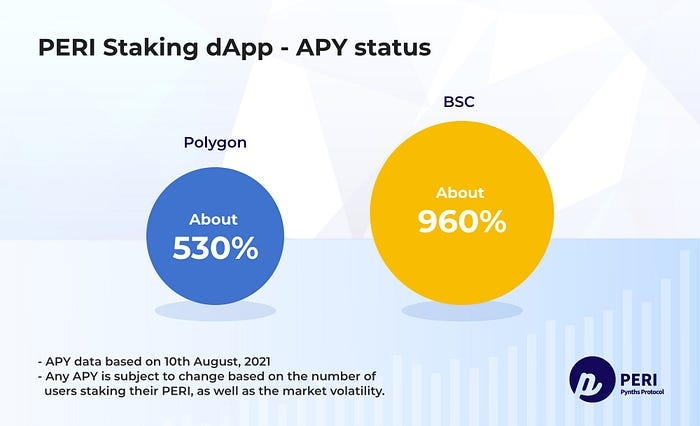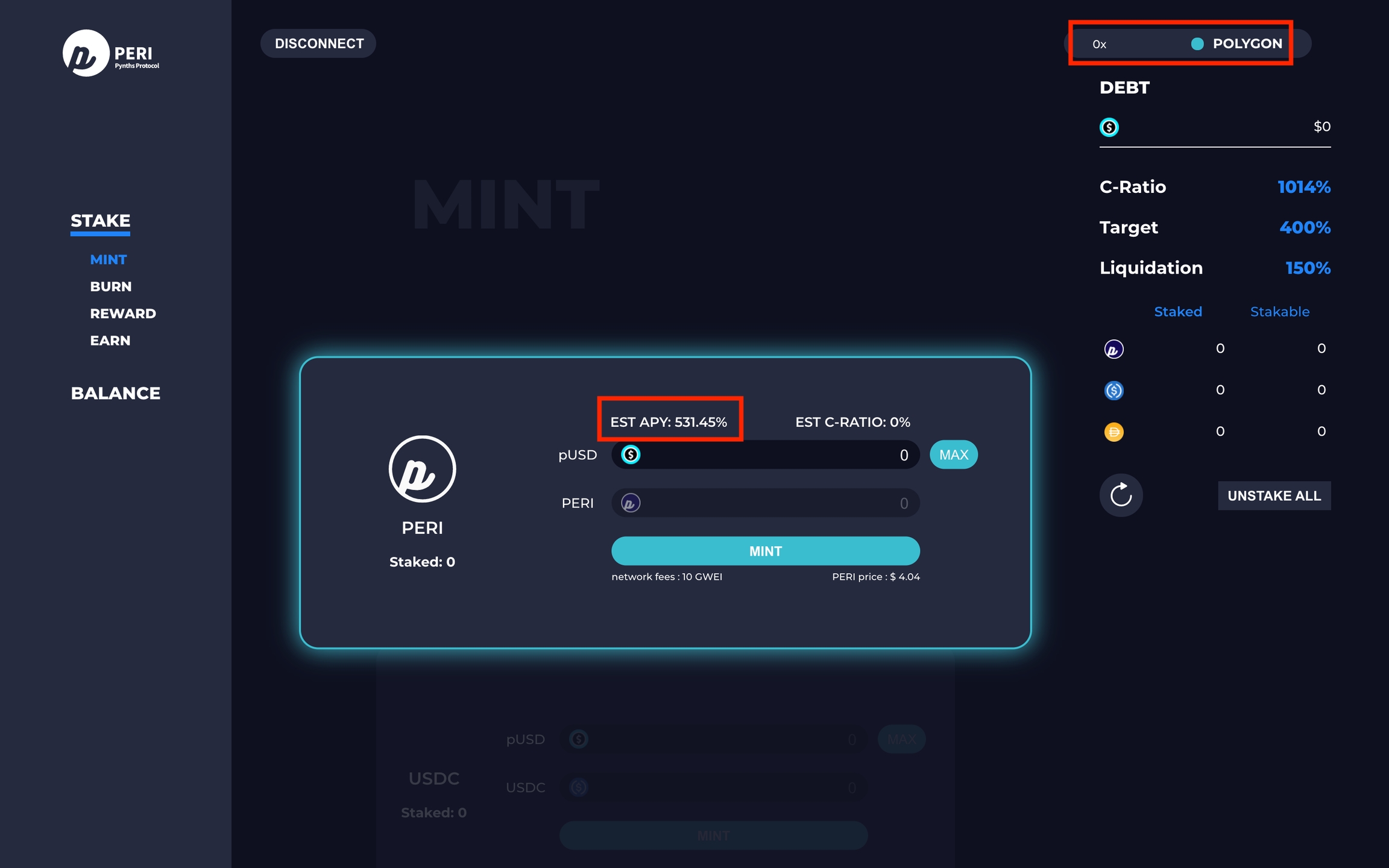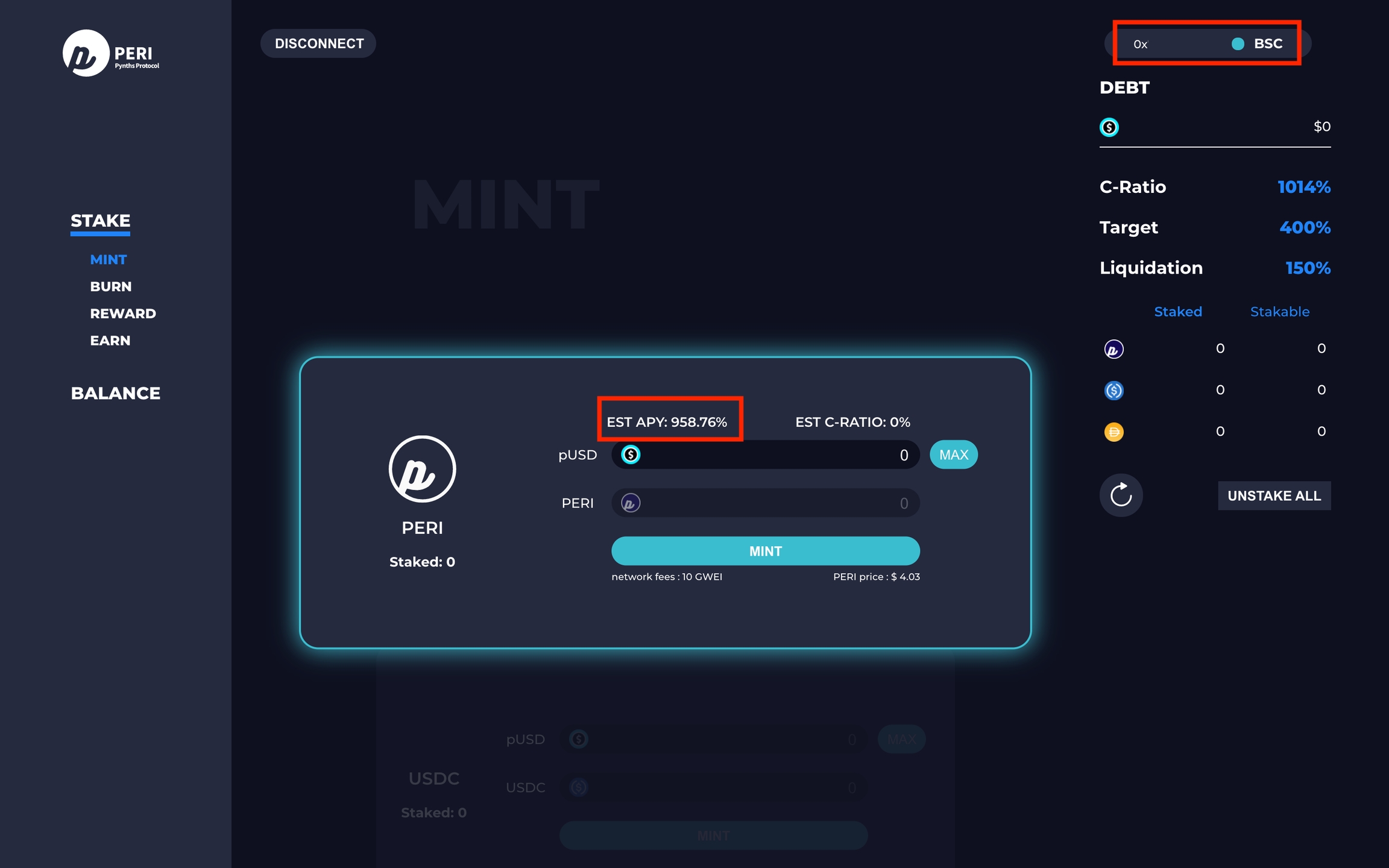Details of APY — PERI Finance dApp
What is APY?
When staking cryptocurrency assets, APY (Annual Percentage Yield) is one of the most crucial factors to consider for optimal efficiency. APY stands for Annual Percentage Yield and is the projected rate of annual return after taking compounding interest into account. In order to understand how APY is calculated, it is important to understand compound interest.
In essence, compound interest is interest earned on previously earned interest. For example, let’s say you deposit $1USD into a CD(Cash Deposit) savings account at your bank with a simple interest of 1%. You are constantly receiving same amounts of monthly interest: $0.00083 ($0.01 for the annual interest)
Let’s assume that you deposit $1USD into a CD savings account at your bank with an APY of 1%. Your primary monthly interest is $0.00083. However in second month, your monthly interest is increased to $0.00084. It is because the interest that received in previous month is added to your deposit. As the your deposit value increased, your interest also increases. We call this as compound interest.
APY on PERI
This system is also applied in PERI Finance’s staking dApp. If you staked PERI into staking pool, you can receive following APY in PERI staking dApp:

According to the data at 10th August 2021, BSC APY recorded about 960% and Polygon was about 530% on PERI Finance staking dApp. It’s because APY is affected by how much amount of token(PERI and stablecoins) have staked on each Mainnet, so the more amount staked on certain Mainnet, the lower APY appears on dApp.
You can check current APY status by switching the networks on our dApp like below:


This means that the total staking amount in BSC is relatively low, so staking users in BSC can get more rewards than other networks.
Disclaimer
Any APY is subject to change based on the number of users staking their PERI, as well as the market volatility. This is the initial absolute APY rate based on this exact time’s conditions, without any guarantee and are non-binding, they are listed solely for information purposes.
Last updated
Was this helpful?